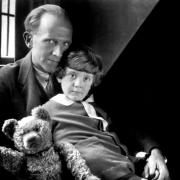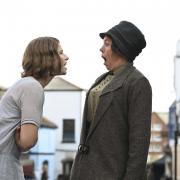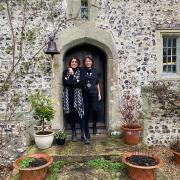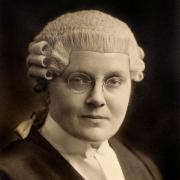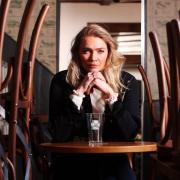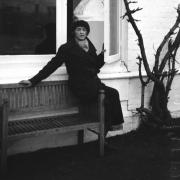Clare Connor is managing director of women’s cricket at the England and Wales Cricket Board. Here the former Sussex and England player explains why there has never been a better time to be a woman in the sport

Growing up playing cricket in Sussex, Clare Connor could not even aspire to play professional cricket for her country. Such was the lack of exposure for women's cricket then that the future Sussex and England captain did not even know a national team existed. As a cricket-mad teenager, she instead played happily with boys and men in the Sussex leagues and at school.
Now, as managing director of women's cricket at the England and Wales Cricket Board (ECB), Clare has developed a £20m programme to transform women's and girls' cricket. Called Inspiring Generations, it builds on England's World Cup triumph in 2017, and sets out to create a pathway for young girls playing the game for the first time all the way through to the international stage. "Cricket has been an integral part of my life," she says. "I have never been more excited by the opportunity in front of us right now."
Clare's cricketing journey started at her father's club Preston Nomads, whose picturesque Spen Cama Memorial Ground boasts spectacular views of Devil's Dyke and the South Downs. There were, though, no girls' teams, so the only options available were to join boys' sides. It was the same situation at school, Brighton College, where she opened the batting.
"I didn't come across any other girls. It's almost as if I should look back and feel like it was a very odd set of experiences. But I was really lucky in that I had unconditional support from family, teachers and people around me and the support and friendship of the boys I played with. So I don't recall at the time feeling like an odd bod."
In other sports - netball, hockey and squash - Clare participated in girls' teams. Cricket remained the exception.
She was unaware of the opportunities available in the women's game: "Because I was just surrounded by boys and men when I was a youngster playing cricket and there was no profile or visibility of the women's game at all then. I didn't know that there was even an England women's cricket team because there was no media coverage. It was invisible.
"It sounds silly, but I just thought that because I was progressing nicely in boys' cricket, the fact that I was a girl didn't really matter and that my future would continue to always be in boys' and men's teams."
Her world opened up in her mid-teens when she learned there was a Sussex women's team and was invited to a county trial at Roedean School. "By then I'd had such an unbelievable grounding in the game already that I was selected immediately for the women's county team even though I was only 15."
Shortly after, her horizons broadened still further when she was invited to a junior England girls' trial. "I'd been so fortunate with the coaching I'd received already that I kind of stepped straight into that environment without really being tested or without much sort of scrutiny. I was already technically good enough for that level.
"That was where I first met Charlotte Edwards. We became good friends and played for England together for a long time. She'd also played loads of boys' cricket and we both stepped very easily into junior England girls'."
Clare first played for England aged just 18 in 1995. In a distinguished international career over the next decade she represented her country in a total of 16 Test Matches and 93 one-day internationals, scoring 1,600 international runs and taking more than 100 wickets including a hat-trick against India in 1999.
Like many of her peers, Clare was forced to fit her cricket around work - first her university studies and later as a teacher at Brighton College. Only in the last two years of her England career did she take a sabbatical and play cricket full-time. Even then, not because there was money in the game to do so, but because she picked up some media work including stints as a commentator for Channel Four. Being able to focus on the sport full-time gave her a taste of what the current England side would experience when paid central contracts were eventually introduced in 2014.
Her career highlight came in summer 2005 when she led her country to Ashes victory over Australia for the first time in 42 years. She had overseen a remarkable reversal of fortunes after inheriting the captaincy in early 2000 when England had been beaten in every match of a tour Down Under.
Sadly, Clare retired from international cricket the following year aged just 29, after injuries ruled her out of a tour to India. In 2007 she became the ECB's head of women's cricket and last year she was appointed to her current role, taking responsibility for everything from the grassroots to the England team.
Clare cites the investment that has gone into the national side. It contributed to England's 2017 World Cup win in front of a full house at Lord's, proving a defining moment for the women's game. Yet more still needs to be done to close the gap on Australia who overwhelmed England in the most recent Ashes series.
The ECB's new Inspiring Generations strategy addresses the whole pathway through the game. Clare hopes young girls will be able to see a place for themselves in cricket, much more so than was the case when she was young: "We have an amazing opportunity to make cricket the sport we want it to be - modern, innovative and inclusive," she says.
One big development will be the awarding of 40 contracts to domestic players to play in a new elite domestic structure that starts in summer 2020. That is in addition to the current number of 18-20 centrally contracted England players. "That's a huge step in the right direction, being able to offer cricket as a career for more women and girls and for them to be able to have that aspiration. But there will still be a number having to juggle employment and university with trying to make it. So the job's by no means done. But at least that's a significant increase in the number of players who can call themselves full-time cricketers and earn a liveable wage.
"The key is being able to focus your time and energy on that one goal, to give yourself the best chance of being the best you can be. That's very difficult when you're scrambling around trying to earn a living outside of the game or juggle your family and personal life with career, and then trying to be a skilful and fit cricketer. That's a lot to expect people to do."
Inspiring Generations aims to make cricket more accessible at all levels, including more opportunities to play at local clubs with the right levels of support for talented youngsters. In Sussex, for example, girls' youth group cricket will receive significant investment and focus. Support across the whole sport should make a real difference for girls taking their first steps through the recreational game and on to county or age group programme.
"That's really lovely because it gives us the chance to build something that joins up nicely; a real journey through the game from a girl who might be as young as six or seven picking up a cricket bat for the first time and to be able to show her what the next steps are throughout her playing journey."
League cricket in Sussex is particularly strong. That, together with a decade of investment in women's and girls' cricket locally, presents a real platform for the sport to grow.
The county's structure also means that women and girls development officer Charlotte Burton reports directly to Keith Greenfield, director of cricket at Sussex County Cricket Club, who oversees all cricket in the county.
"That shows that it's integrated," says Clare. "Charlotte's done a great job in two main areas: the girls' talent pathway in Sussex, but also the number of clubs with women's and/or girls' sections. So it's really thriving in the county.
"Sussex has approached it in a really strategic way and with investment in time and Charlotte has been a really key figure in that progress. So these are exciting times and a county like Sussex, that is already quite ahead of the national position, can go from strength to strength."




